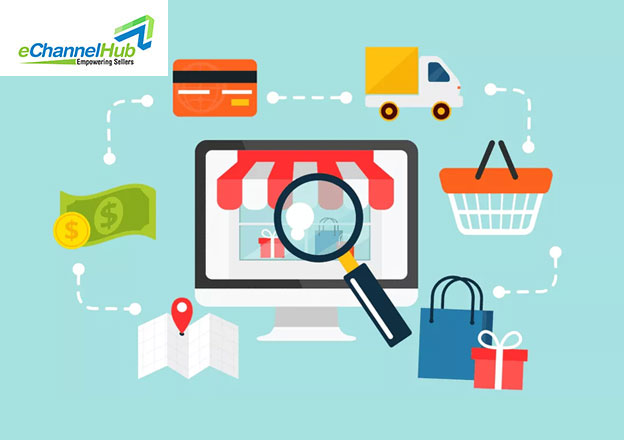Elevating Your Brand: How Can Small Businesses Use eCommerce to Expand Their Reach

Are you a small business owner looking to take your brand to the next level? Do you want to avoid being limited by geographical location and struggling to reach new customers?
Well, eCommerce might be the solution you’re looking for! In today’s digital age, having an online presence is essential for any business looking to grow and expand its reach.
In this blog post, we’ll explore how small businesses can use eCommerce platforms to elevate their brand, increase sales and customer loyalty, and ultimately achieve long-term success.
How Can Small Businesses Use eCommerce to Expand Their Reach?
Small businesses can use eCommerce to expand their reach and grow their customer base in several ways. The most obvious way is by setting up an online store where customers can purchase products and services directly from the business.
This allows customers who may not live near the business’ physical location to purchase items from them. Additionally, customers who are unable or unwilling to visit a physical store (due to time constraints or accessibility issues) can still shop from comfort.
Benefits of Utilizing eCommerce Platforms
There are many benefits of utilizing eCommerce platforms for small businesses.
- It gives businesses a wider reach. With an online presence, companies can target a global audience rather than just those in their immediate area.
- Another great benefit of using eCommerce platforms is that it allows businesses to collect customer data. This data can be used to improve the customer experience and make more informed decisions about marketing and product development.
- eCommerce can also help businesses save on costs associated with traditional retail methods, such as renting storefront space.
- In order to increase customer satisfaction, eCommerce platforms provide seamless shopping experiences from browsing products to making a purchase.
- Businesses can benefit from eCommerce platforms by gaining valuable insight into customer behaviors, preferences, and buying patterns.
What Kind of Technologies Are Available to Digitize Your Business?
There are a variety of platforms and technologies available to digitize your business. Depending on your needs, you may want to consider a platform that offers a complete suite of tools for online businesses or a more specialized platform that offers specific tools for your industry.
Some of the most popular platforms and technologies for digitizing businesses include:
- eCommerce Platforms: These platforms offer everything you need to build an online store, from website design and hosting to shopping cart software and payment processing.
- Social Media Platforms: Social media platforms can be used to promote and sell products or services, as well as to connect with customers and build relationships. Popular social media platforms for business include Facebook, Twitter, LinkedIn, and Instagram.
- Content Management Systems (CMS): A CMS is a platform that helps you create, manage, and publish content on your website or blog. Popular CMS options include WordPress, Drupal, Joomla!, and Squarespace.
- Website Builders: Website builders are easy-to-use tools that allow anyone to create a professional-looking website without prior experience or design knowledge. Some popular website builders include Wix, Weebly, and Squarespace.
- Search Engine Optimization (SEO) Tools: SEO tools help you optimize your website or blog for search engines so that they rank higher on search engines, and it can help you build credibility and trust with your audience.
- Mobile Apps: There are also a number of different mobile apps that can help you digitize your business. This can include things like task managers, customer relationship management (CRM) apps, invoicing apps, and more.
- Cloud-Based Solutions: Cloud-based solutions are becoming increasingly popular for businesses of all sizes. They offer a number of advantages, such as scalability, flexibility, and cost savings. Some popular cloud-based solutions for businesses include Google Apps for Work, Microsoft Azure, Amazon Web Services (AWS), and more.
Steps To Get Started with an eCommerce Store
eCommerce platforms allow small businesses to reach a larger audience and sell their products or services online. To get started with an eCommerce store, there are a few steps companies need to take:
- Choose The Right eCommerce Platform: There are many different eCommerce platforms available, so it’s essential to choose one that fits the unique needs of your business. Be sure to consider factors such as ease of use, scalability, cost, and integrations when deciding.
- Set Up Your Account And Store: Once you’ve selected an eCommerce platform, you’ll need to set up an account and create your online store. This process will vary depending on your chosen platform but typically involves entering basic information about your business and adding products or services to your store.
- Customize Your Store: Once it is set up, you can start customizing it to match your brand identity. This includes adding branding elements like logos, colors, and fonts and setting up navigation and payment methods.
- Promote Your Store: The final step is to promote your new online store to drive traffic and sales. This can be done through marketing initiatives like social media campaigns, search engine optimization (SEO), and email marketing.
Common Challenges in Setting Up an eCommerce Website
One of the most common challenges small businesses face when setting up an eCommerce website is finding the right solution that fits their needs and can help easily generate leads for small businesses. There are many options, and it can be overwhelming to figure out which one is best.
Other challenges include getting set up on the platform, understanding how to use all the essential features, and ensuring the platform is secure.
Another common challenge is marketing your eCommerce store. You need to let potential customers know that you exist and that you have what they’re looking for. This can be done through online advertising, social media, or good old-fashioned word-of-mouth.
Once you’ve overcome these hurdles and have your eCommerce store up and running, it’s important to continue monitoring it and to ensure everything is working as it should. Things can always change, so it’s important to stay on top and be prepared to make tweaks as needed.
5 Best eCommerce Platforms for Small Businesses
When it comes to eCommerce solutions for small businesses, there are many options out there. But which one is the best for your business? Here are the five best eCommerce solutions for small businesses:
- Shopify: Shopify is one of the most popular eCommerce platforms, perfect for small businesses. It’s easy to use, has many features, and is affordable.
- BigCommerce: Another great platform for small businesses is BigCommerce. It offers a lot of features and is also very easy to use.
- Magento: Magento, now Adobe Commerce is a robust and flexible open-source eCommerce platform. Although it’s best suited for larger businesses, small businesses that need more complex customization in their eCommerce store can opt for it.
Both Magento and BigCommerce are popular for their customization capabilities. - WooCommerce: WooCommerce is an excellent solution for small WordPress businesses. It’s easy to set up and has a lot of features.
- Wix: It is a great choice for small business owners who prefer a drag-and-drop interface to build their websites. Wix offers a variety of templates and features, including payment processing and shipping capabilities.
Final Words
Small businesses that use eCommerce can have a significant impact on both their brand presence and the success of the company itself. By utilizing digital platforms, small businesses can reach customers beyond their local area and create an online shopping experience tailored to their target audience’s needs.
With a little effort, any small business can enhance its brand visibility by using eCommerce to expand its customer base and make it easier for customers to purchase from them.
Write For Us
Gain multichannel inventory visibility and control with eChannelHub
Learn more about eChannelHub with a free demo, tailored for your unique retail business.
Request A DemoRequest a Demo
Gain multichannel inventory visibility and control with eChannelHub
Learn more about eChannelHub with a free demo, tailored for your unique online business




